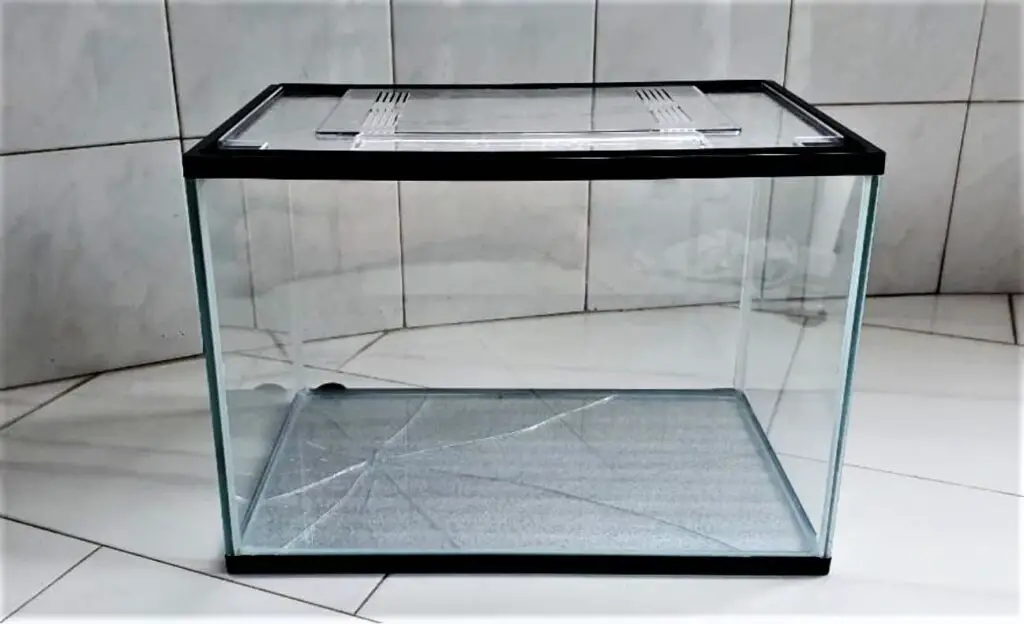Aquarium insurance is not a necessity, but it can provide financial protection for you, your family and your aquarium. If you invest significantly in your aquarium, the peace of mind and coverage it offers can be worthwhile. However, for smaller, less expensive aquariums, the cost of insurance may outweigh the potential benefits.
As a long-time aquarium enthusiast, I’ve encountered my fair share of incidents and mishaps. Over the years, I’ve faced everything from equipment failure to unexpected accidents. I’ve had heaters malfunction, smash within the tank, and even give me an electric shock. Though I’ve never had a heater explode, it’s worth noting that they can cause fires, a risk any aquarist should be aware of.
And then there are the tank mishaps. I recall cleaning my Oscar tank once and accidentally dropping a hefty pebble. To my horror, water started seeping out – I had shattered the bottom of the tank. What’s worse, this tank was located on the second floor of my parents’ house, right above the living room… and the TV.
Needless to say, the water found its way down, resulting in a ruined television. This was not a modern flatscreen TV either, and the incident ended with quite the bang.
Sadly, this was not a standalone incident. In my 40 years of keeping aquariums, I’ve broken at least two more tanks. I remember one instance vividly, where the entire front panel of a tank came off – guppies were scattered everywhere, making a mess of the carpet.
I also had a large Pacu tank where a canister filter hose got disconnected and started pumping water out of the tank. Imagine my parents’ shock when they noticed water dripping from the ceiling!
hose got disconnected and started pumping water out of the tank. Imagine my parents’ shock when they noticed water dripping from the ceiling!
The reality is, if you’re invested in the aquarium hobby for long enough, things happen. I’ve been fortunate that my home insurance covers my aquariums, which essentially are glass boxes located in a waterproof room, so damage is relatively contained.
However, if you’re using heaters, electrical filters, or other equipment, it’s essential to make sure your tanks are covered. I’ve known folks who’ve almost lost their homes to fires caused by faulty heaters.
The bottom line? Aquarium insurance can be a real lifesaver.

Aquarium Insurance: What Is It?
Aquarium insurance is a specific type of insurance policy that covers costs related to unexpected situations with your aquarium. These can include leaks, equipment failure, and even loss of fish due to such incidents. Think of it as a safety net.
Importance of Aquarium Insurance
An aquarium is a significant investment. With the costs of exotic fish, corals, equipment, and maintenance, it’s not just a hobby but a financial commitment. Aquarium insurance helps protect this investment and gives you peace of mind, knowing you’re covered if the unexpected occurs.
Different Types of Aquarium Insurance
There are several types of aquarium insurance policies, each tailored to different needs. Some cover equipment and tank damage, while others extend coverage to your aquatic life. Comprehensive policies may even cover veterinary bills for your fish! This is more common with people that have ponds and have expensive koi.

The Cost of Aquarium Insurance
The cost of aquarium insurance varies significantly based on factors like the size of your aquarium, the value of your fish and equipment, and the coverage type. You may find policies as low as a few dollars a month to those costing several hundreds annually.
Factors Affecting Aquarium Insurance Cost
Just like other insurance types, aquarium insurance premiums are affected by factors like the size and value of your tank, the species of fish you own, and the level of risk assessed by the insurer. A rare, expensive fish collection, for example, might result in higher premiums.
How to Choose the Right Aquarium Insurance Policy
Choosing the right aquarium insurance policy requires considering your unique needs. Think about the value of your aquarium and fish, your risk tolerance, and how much you’re willing to spend on premiums. Always compare multiple policies and read the fine print before deciding.
Where to Buy Aquarium Insurance
Several insurance companies and pet-related insurers offer aquarium insurance. It’s wise to start your search online to easily compare different policies, premiums, and reviews.
If you already have house insurance, you may consider asking them for advice, often you will be able to combine insurance at a cheaper cost if you get it with your main insurer, I think I personally have maybe 5 different types of insurance just through my bank ranging from care insurance to house insurance.
What to Consider Before Purchasing Aquarium Insurance
Before purchasing aquarium insurance, consider the financial investment you’ve made in your aquarium. Also, take into account the potential costs of equipment replacement or veterinary care. These costs can help you decide whether insurance is necessary or if self-insuring is a better option.
Claiming on Your Aquarium Insurance
Claiming on your aquarium insurance typically involves providing proof of the incident, such as photos or a vet’s report. Ensure you understand the claim process, as some insurers may require specific documentation or have strict deadlines for filing a claim.
Is Aquarium Insurance Worth It?
The value of aquarium insurance ultimately depends on your personal situation. If you’ve invested heavily in your aquarium, insurance can provide financial protection. However, for a small, low-cost aquarium, the premiums may not justify the potential payout.
Remember you are not only insuring the aquarium but any resulting damage it causes if an accident occurs.
The Pros of Aquarium Insurance
Aquarium insurance offers several advantages. These include financial protection, peace of mind, and coverage for unexpected situations. It allows you to enjoy your hobby without the constant worry of potential financial losses.
The Cons of Aquarium Insurance
Despite its advantages, aquarium insurance does have some downsides. These can include the cost of premiums, potential claim disputes, and coverage limitations. It’s important to thoroughly understand your policy and its limitations.
Aquarium Insurance Vs Pet Insurance
While pet insurance covers veterinary bills for your pets, aquarium insurance is specifically designed to cover costs related to your aquarium, such as equipment failure or tank damage. Some comprehensive aquarium insurance policies may also cover veterinary care for your fish.
Common Misconceptions About Aquarium Insurance
One common misconception is that aquarium insurance covers all possible incidents. However, most policies have specific exclusions, such as pre-existing conditions or certain types of damage. Always read the fine print to understand exactly what’s covered.
Aquarium Insurance for Renters
If you’re a renter who also happens to be an aquarium enthusiast, you’ve got a unique set of considerations when it comes to insurance. Most renters’ insurance policies cover personal belongings but might not adequately cover specific circumstances that could arise with aquarium ownership. This is where aquarium insurance can play a significant role.
Renters insurance typically covers personal property up to a certain limit and includes items like furniture, electronics, and clothing. However, if your aquarium were to leak and cause water damage to your rented space, or if an electrical failure led to a loss of aquatic life, these instances might not be covered under your standard renters policy.
to a loss of aquatic life, these instances might not be covered under your standard renters policy.
Aquarium insurance, on the other hand, can offer coverage for these types of incidents. It’s specifically designed to handle the unique risks associated with owning an aquarium, such as equipment failure, tank leaks, or loss of your precious aquatic life due to these accidents.
For renters, a combination of both renters insurance and aquarium insurance can provide the most comprehensive coverage. The renters insurance will cover your personal property and potential liability you might have as a renter, while the aquarium insurance will cover the unique risks associated with your aquarium.
It’s important to remember that insurance policies can vary significantly, and the coverage can depend on many factors. Always read the fine print of any policy you’re considering, and if in doubt, consult with an insurance professional. It’s better to be safe and covered than risk being caught off guard by an unexpected event.
Remember, as a renter with an aquarium, it’s crucial to understand what your insurance policies cover and where the gaps might be. It’s always a good idea to do your research or consult with a professional when considering your options.
Conclusion
Aquarium insurance offers financial protection for your aquarium, providing peace of mind for aquarists. As with any insurance, it’s essential to understand what’s covered and weigh the costs against potential benefits. Ultimately, the decision to insure depends on your unique circumstances.
FAQs
- What is aquarium insurance? Aquarium insurance is a specific type of policy that covers costs related to unexpected situations with your aquarium. This can include issues like leaks, equipment failure, or even the loss of aquatic life due to such incidents.
- How much does aquarium insurance cost? The cost of aquarium insurance can vary greatly. Factors influencing the price include the size of your aquarium, the value of your fish and equipment, and the coverage you choose. Premiums can range from just a few dollars a month to several hundreds a year.
- What does aquarium insurance cover? Aquarium insurance typically covers damage to your tank and equipment, and can sometimes cover the loss of aquatic life due to covered incidents. The specific coverage will vary between insurance providers and individual policies, so it’s crucial to read the fine print.
- Is aquarium insurance worth it? The value of aquarium insurance depends on your personal situation. If you have a significant financial investment in your aquarium, insurance can provide peace of mind and financial protection. However, for a smaller, less expensive aquarium, the cost of insurance may outweigh potential benefits.
- How can I protect my aquarium without insurance? Regular maintenance and proper care of your fish can help mitigate risks. This includes checking your equipment regularly, feeding your fish a balanced diet, and maintaining a clean environment. Setting aside an emergency fund for unexpected incidents can also be beneficial.
- Where can I buy aquarium insurance? Many insurance companies and pet insurers offer aquarium insurance. An online search is a good starting point to compare different policies, premiums, and customer reviews.
- How do I claim on my aquarium insurance? The claim process usually involves providing proof of the incident, such as photos or a vet’s report. Each insurer will have their own specific claim process, so it’s important to understand what’s required and any deadlines you need to meet.
- Does aquarium insurance cover my fish? Some aquarium insurance policies do offer coverage for your fish, particularly in the event of loss due to a covered incident. However, this varies between insurers, so be sure to check the specifics of any policy you’re considering.
- Aquarium insurance vs pet insurance: what’s the difference? While pet insurance typically covers veterinary bills for a wide range of pets, aquarium insurance specifically covers costs related to your aquarium, such as equipment failure or tank damage. Some comprehensive aquarium insurance policies may also cover veterinary care for your fish.
- What are the pros and cons of aquarium insurance? Pros of aquarium insurance include financial protection and peace of mind. Cons can include the cost of premiums, potential claim disputes, and limitations on coverage. Always understand your policy’s specifics before making a decision.
